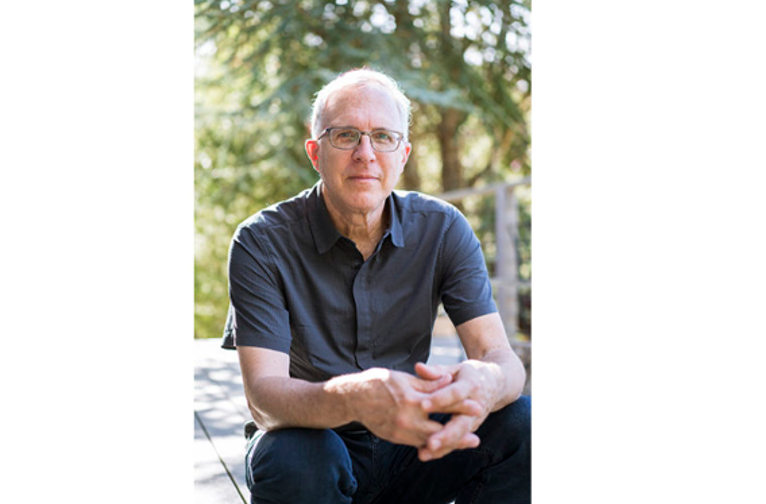The commons hold an almost mythological allure in our minds — something from a bygone era when human societies were marked by collectivism and community cohesion. We might think of Medieval England, where forests were held in common by communities of people who could freely forage and hunt. Or perhaps the word evokes images of a pastoral landscape where ancient shepherds shared large tracts of land for grazing.
In a modern era marked by private property and fierce competition, the idyllic commons can feel like something from our deep past that is now lost — but it would be a mistake to think this way. The commons are actually all around us. They take many forms and offer a promise for a future that brings us closer to a world of equity and ecological regeneration.
In the new book, Free, Fair, and Alive: The Insurgent Power of the Commons, authors David Bollier and Silke Helfrich explore what the commons look like today and what they offer as a means to building a better world. We spoke with David Bollier about what the authors hoped to achieve with the book and how we can leverage the commons for system change.
Robert Raymond: Can you define the commons, and what you call commoning, as you see it?
David Bollier: There’s no single definition of the commons because it’s really more of a verb than a noun. It’s more of an activity of commoning — the social practices of coordinating and negotiating and resolving conflicts and punishing people who break the rules. And this takes place in a huge variety of different contexts. So it’s hard to say, “Here’s a 25 word description,” because any commons is so dependent on context. They are always evolving.
That said, there are many regularities in the way people behave in commons to meet their needs in non-market ways. Meaning you’re not having a cash exchange. You’re contributing freely to a group and in time you’re going to get benefits back from that. Responsibilities are linked to entitlements. There is a stewardship going on among the group to preserve the resource and to ensure that things remain free and fair for everyone. You need to have room for imagining different ways of doing things than business models or bureaucracies normally allow for.
The commons are as old as the human species and as new as a lot of internet systems. And that means we as a species have a lot of experience with collective social practices. Cooperation and self-governance are ancient human traditions, but also new and constantly evolving.
Can you provide some examples of current commoning projects or initiatives that might give us a sense of what you’re referring to?
The familiar ones are everything from traditional communities that manage farmland or fisheries or irrigation water. Indigenous peoples often act as stewards of a landscape or of certain resources. But commons are also communities that generate things like open-source software and Wikipedia. There’s also a whole sector of open-source design that happens globally — for motor vehicles, furniture, houses, and electronics. The globally produced designs can then be produced locally through modular, inexpensive forms — so-called cosmolocal production. There are urban commons like community gardens and cooperative finance, and social commons like time banking — a credit-barter system that lets people meet their needs without money.
I could cite dozens of examples. But the point is for a collectivity to decide among themselves that they’re going to manage a resource for collective benefit in ways that are fair, inclusive, participatory, and that can evolve into the future. This is a different form of governance and provisioning than that provided by markets or the state.
An important point that you make in the book is that we must begin looking to collective solutions instead of individual ones. Can you talk about why this is important and how it’s related?
The short answer is that without a collective response, we’re not going to have structural change. We will get stuck in Groundhog Day with the same thing happening to us again and again and again, as individuals, because the existing system won’t change itself and it will have every incentive and capacity to co-opt demands for change.
We mention this issue in the introduction of our book, that the market-state system — as we call it, because the market and the state are so tightly allied — have a rich repertoire of divide-and-conquer strategies for neutralizing social movements. There’ll be one set of demands for racial or gender equality in law, for example, and while those might be accepted, they’ll be very poorly enforced. Or people will demand environmental protection, but then that can only come at the cost of higher prices for consumers or extracting more and more natural resources from the Global South. Or people will say, “Yeah, we want better healthcare and family-friendly work policies,” but then that will be delivered under a system of extractive corporate profits.
My point is simply that so long as the focus is on individuals, solutions will amount to a shell game. Solutions will be shifted from one area to another through all sorts of rhetorical strategies that claim “we’ve solved the problem.” Part of our motive in talking about the commons is to develop solutions that are free, fair and ecologically responsible for everyone. Once you make those demands simultaneously, rather than trading them one off against the other, you have a different strategic approach. Solutions are more likely to be systemic and effective rather than a beggar-thy-neighbor approach where solutions to one problem come at the expense of another problem. So that’s why we think a commons framework is valuable as political strategy.
You argue that the real forces for transformational change exist in the “small places, with small groups of people, beneath the gaze of power.” Can you unpack this idea a bit?
There’s an important conversation we need to have about the appropriate scale of things. So often people believe that the only consequential activities happen at the top level somewhere, within the state or markets, and that big problems necessarily require big solutions. But I love a quote from the British social critic David Fleming: “Large-scale problems do not require large-scale solutions. They require small-scale solutions within a large-scale framework.” I find the commons attractive because it provides a big-scale framework for many, many small solutions. People develop a capacity to orient themselves in the big picture and align their work, cooperate, and federate themselves.
There’s another quote from Dutch artist Thomas Lommée, who says, “The next big thing will be a lot of small things.” I think, especially in the internet age, when you have the enabling tools for lots of small-scale, context-based, place-based solutions, that’s where we need to focus. One-size-fits-all, top-down approaches won’t work because they won’t take account of specific contexts, and they often won’t be seen as being legitimate or trustworthy.
You explain that you wrote Free, Fair, and Alive not just to shed light on our current state of affairs, but to also serve as a guide to action. What actions do you hope to spur?
My co-author Silke Helfrich and I have read so many wonderful books of critique that end with a Chapter 12 that is underdeveloped and tepid. The supposed set of solutions just aren’t very compelling. Part of the problem is we have so much emphasis on critique and not enough on creative experimentation. We regard our book as Chapters 13 through 22, meaning, here are some specific, creative, credible ways that we can start to build practical alternatives.
In our book, we created what we call the “Triad of Commoning” as a guidepost for readers. We spend three chapters describing the patterns of behavior in successful commons, with recommendations in three areas — social life, peer governance, and provisioning. The patterns amount to a how-to manual — not a blueprint or recipe, but more of a set of touchstones to guide people who might want to build their own commons. The patterns recognize that any commons has to be built in a unique context of history, geography, cultural traditions, values, and so on. We don’t want to presume to say that one approach will work everywhere around the world.
What should people take away from your book?
That there are some credible pathways forward. There are scores of functional, successful examples that can be seen as a source of inspiration and be emulated. Readers should come away with a sense that there are other possibilities within our grasp. They cannot be realized individually; they must be pursued through groups of people learning to work together. But these alternatives can help us withdraw from the circuits of capitalism that are so often predatory in our lives and extractive of natural systems and community. We can start to create our own circuits of peer governance and provisioning, and we can build greater sovereignty and control over systems that we depend on.
This interview has been edited for length and clarity.
This article is cross posted with permission from Shareable.net.





